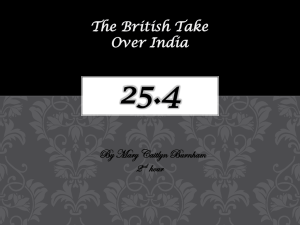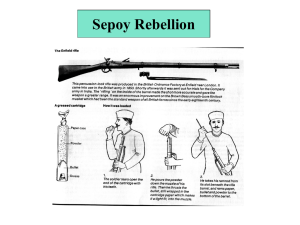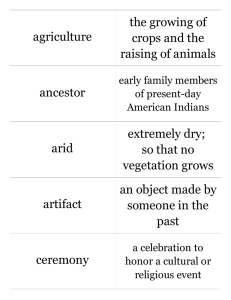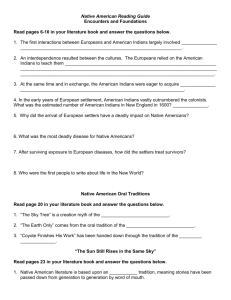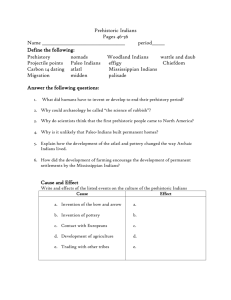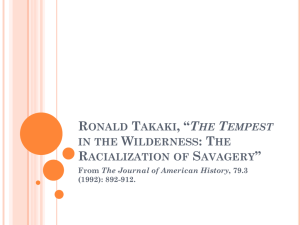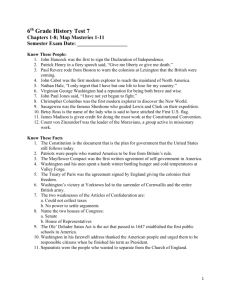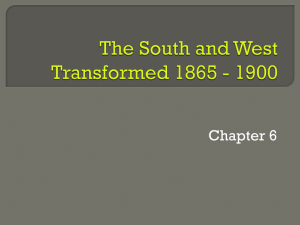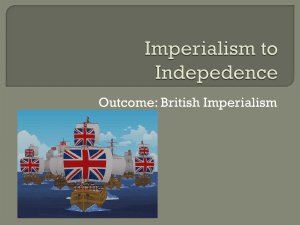The British Take Over India
advertisement
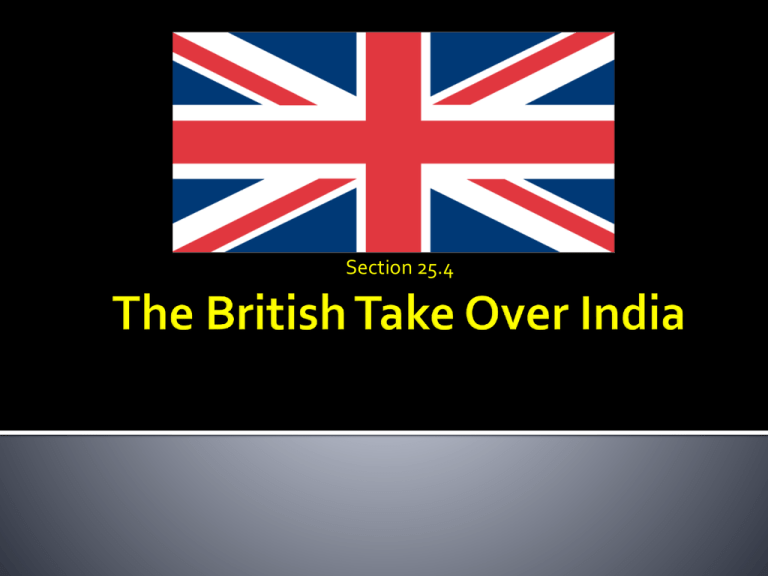
Section 25.4 In 16OO’s the British East India Company obtained trading rights from the Mughal Empire. As Mughal Power declined the Company expanded its influence. India was home to many diverse cultures. As Mughal Power crumbled India fragmented. Indians were not able to unite against newcomers. The British took advantage of this ferment by playing off rival princes against each other. The British with superior weapons over powered local rulers The main goal of the East India company was to make money, and leading officials often got rich British kept Indians from engaging in large scale manufacturing witch hurt the business class. East India Company required Sepoy’s to serve in India or overseas, and a new law was created allowing Hindu widows to re-marry. The Sepoy rebellion swept across northern and central India. The British crushed the rebellion and brought it to an end. Brittan saw India both as a market and as source of raw material. The British built railroads to trade with India The British got better farm equipment making more food and a huge population increase causing famine. British rule brought Peace and order to the countryside During the age of imperialism, Indians and British did not appreciate each other. But most British people did not know all about the Indians Also Indians did not know much about the British When the western-educated Indians emerged the wanted a democracy, equality, and the end of imperial rule. In 1885 nationalist leaders organized the Indian national congress. At first, Muslims and Hindus worked together for self-rule More Indians demanded self-rule Their goal was achieved in 1947 when they gained independence


